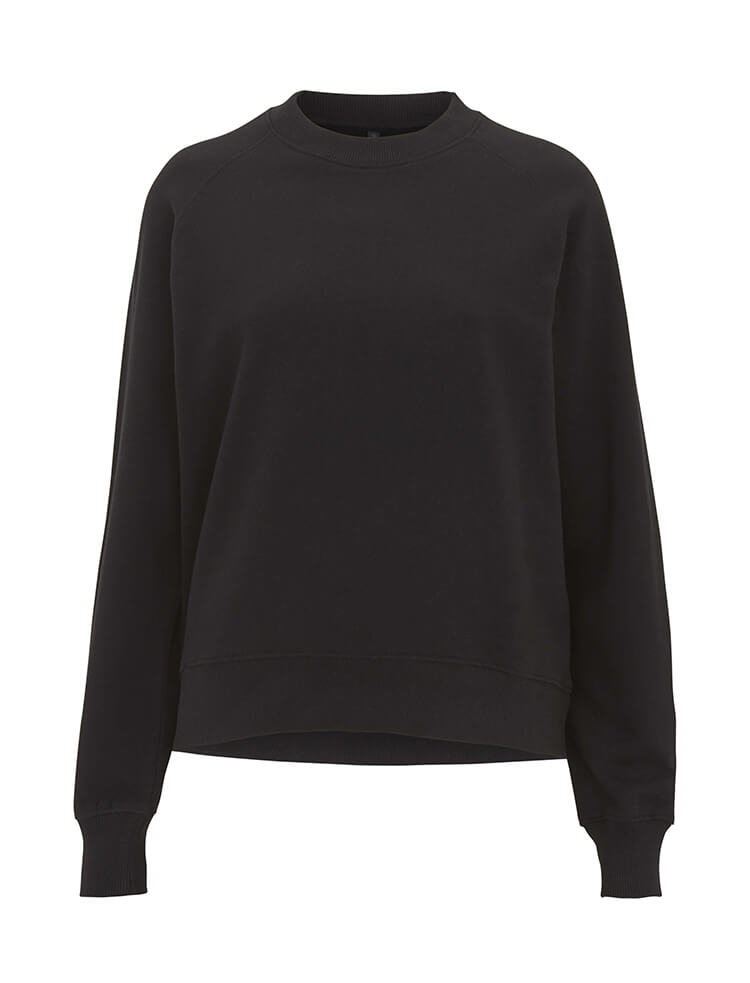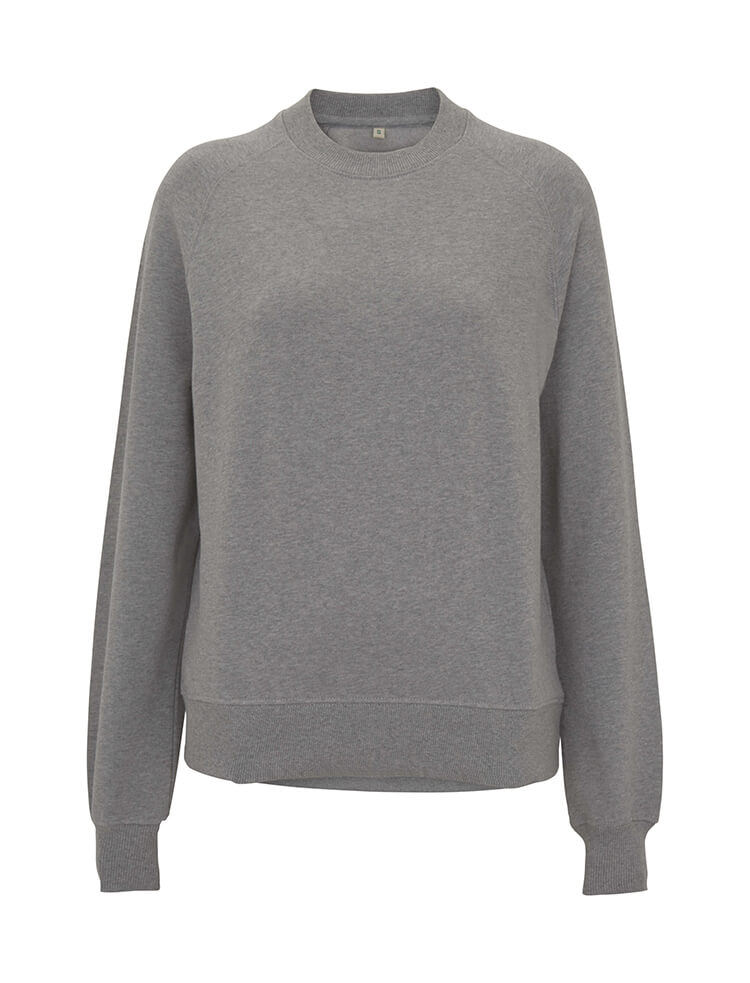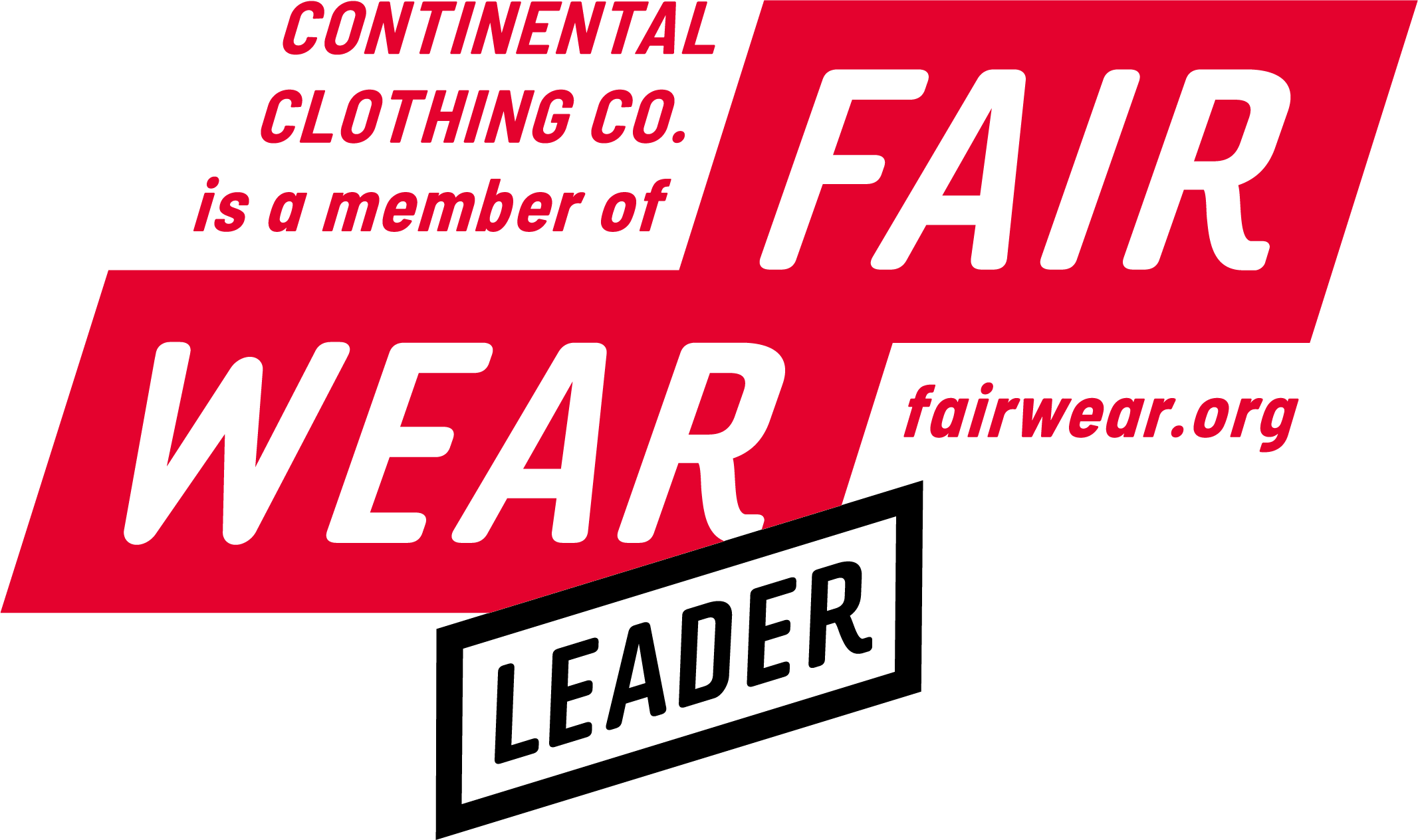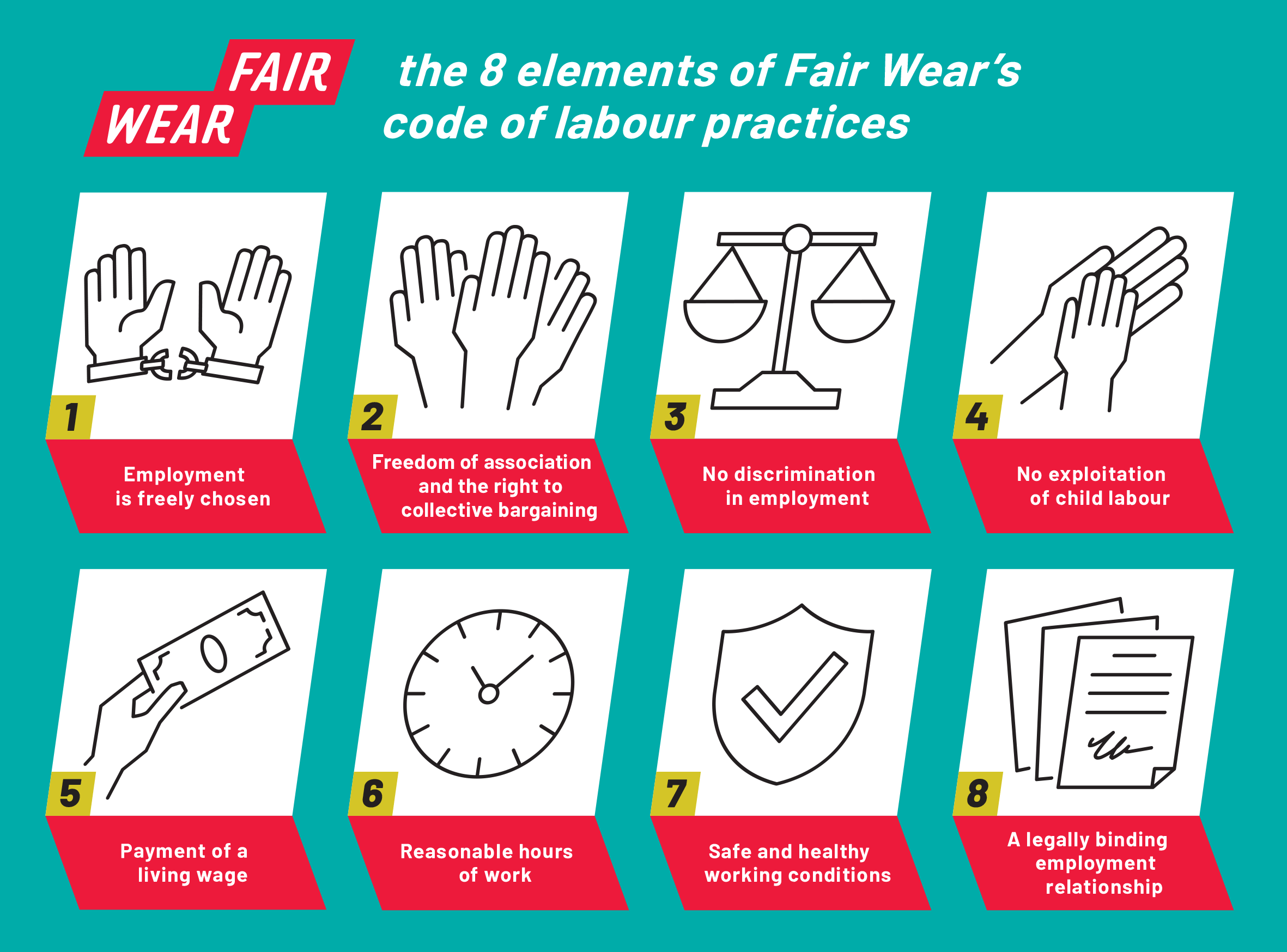-
Type
-
CategoryColours
- View All Colours
Colours
-
Help and support
- FAQs
- Made to order
- Resources
- Privacy
Help and Support -
Our company
- What we do
- Contact
- Blog
Our Company -
Our Brands

EP63
women's raglan sweatshirt
Bamboo 2025 Collection
- S
Brushed 3-ply 8.26 oz / 280 g
-

BL - Black
-

LH - Light Heather
100% GOTS Organic Cotton Compact Spun


The Global Organic Textile Standard (GOTS) is the worldwide leading textile processing standard for organic fibres, including ecological and social criteria, backed up by independent certification of the entire textile supply chain.
Continental Clothing Co. is licensed by the Soil Association to supply fully certified organic products in accordance with the Global Organic Textile Standard. The Company also holds a licence to use the Soil Association Organic Standard logo on products that meet the organic standard criteria.
All the certified products that are sold 'unprocessed' directly by retailers, that is without printing or any other chemical processing, can carry the logo. Garments that are printed by licensed printers according to the organic standard should be labelled with the printer's (last processor) licence number.
The aim of the standard is to define world-wide recognised requirements that ensure organic status of textiles, from harvesting of the raw materials, through environmentally and socially responsible manufacturing up to labelling in order to provide a credible assurance to the end consumer.
Textile processors and manufacturers are enabled to export their organic fabrics and garments with one certification accepted in all major markets. Approved are natural fibres that are certified organic and fibres from conversion period certified according to recognised international or national standards and certified by any IFOAM accredited or internationally recognised (according to ISO 65) certifier.
Key criteria for processing and manufacturing include:
Environmental Criteria
- At all stages through the processing organic fibre products must be separated from conventional fibre products and must to be clearly identified
- All chemical inputs (e.g. dyes, auxiliaries and process chemicals) must be evaluated and meeting basic requirements on toxicity and biodegradability/eliminability
- Prohibition of critical inputs such as toxic heavy metals, formaldehyde, aromatic solvents, functional nano particles, genetically modified organisms (GMO) and their enzymes
- The use of synthetic sizing agents is restricted; knitting and weaving oils must not contain heavy metals
- Bleaches must be based on oxygen (no chlorine bleaching)
- Azo dyes that release carcinogenic amine compounds are prohibited
- Discharge printing methods using aromatic solvents and plastisol printing methods using phthalates and PVC are prohibited
- Restrictions for accessories (e.g. no PVC, nickel or chrome permitted)
- All operators must have an environmental policy including target goals and procedures to minimise waste and discharges
- Wet processing units must keep full records of the use of chemicals, energy, water consumption and waste water treatment, including the disposal of sludge. The waste water from all wet processing units must be treated in a functional waste water treatment plant.
- Packaging material must not contain PVC. Paper or cardboard used in packaging material, hang tags, swing tags etc. must be recycled or certified according to FSC or PEFC
Technical Quality and Human Toxicity Criteria
- Technical quality parameters must be met (s.a. rubbing, perspiration, light and washing fastness and shrinkage values)
- Raw materials, intermediates, final textile products as well as accessories must meet stringent limits regarding unwanted residues
Minimum Social Criteria
Minimum social criteria based on the key norms of the International Labour Organisation (ILO) must be met by all processors and manufacturers, including at farm level. They must have a social compliance management with defined elements in place to ensure that the social criteria can be met. For adequate implementation and assessment of the following social criteria topics the listed applicable key conventions of the International Labour Organization (ILO) have to be taken as the relevant basis for interpretation.
- Employment is freely chosen
- There is no forced or bonded labour
- Freedom of association and the right to collective bargaining are respected
- Working conditions are safe and hygienic
- Child labour must not be used
- Living wages
- Working hours are not excessive
- No discrimination is practised
- Regular employment is provided
- Harsh or inhumane treatment is prohibited
Quality Assurance System
Generally a company participating in the GOTS certification scheme must work in compliance with all criteria of the standard. GOTS relies on a dual system to check compliance with the relevant criteria consisting of on-site auditing and residue testing.
Read the full standard here


EarthPositive is the low carbon footprint apparel.
Climate Neutral
EarthPositive Apparel is 100% organic with 90% Reduced CO2
The carbon footprint was calculated in accordance with BSI PAS2050 methodology, and certified by the Carbon Trust Certifications.
The 90% reduction has been achieved by a combination of low-impact organic farming, efficiency in manufacturing and transportation, and the use of renewable energy instead of the fossil fuel based grid electricity.
It has been calculated that a single EarthPositive T-shirt saves around 7 kilograms of CO2, whereas a hooded sweatshirt saves up to 28 kgs of greenhouse gases. These are actual reductions achieved in the manufacturing, without any carbon offsetting.
Click here to see the CO2 values of all our products.
Carbon Footprinting
The Carbon Footprint of a product is the total the amount of CO2 and other greenhouse gases emitted as part of a product's manufacture, distribution, use and disposal. Greenhouse gases (GHGs) are so called because they trap heat in the Earth's atmosphere and keep the planet warm. The main gases are carbon dioxide (CO2), methane and nitrous oxide.
In January 2008, Continental Clothing Co. became the first brand in the world to calculate the carbon footprint and place the Carbon Reduction Label on textile products.
As a Business-to-Business supplier of ready-to-print apparel, we have calculated the carbon footprint of all the products in the EarthPositive range from the cotton field, through processing, manufacturing, transport, up to the point of our distribution warehouses.
The Carbon Reduction Label
In March 2009 Continental Clothing Co. launched the world's first Carbon Reduction Label in retail fashion. The EarthPositive footprint labelled clothes went on sale through ethical retailer Ascension decorated with organic print designs. This was the culmination of two years of work with the Carbon Trust to develop a methodology for assessing the carbon footprint of a cotton product from the field through manufacturing, screen-printing, retail distribution, consumer use to the disposal of the garment at the end of its useful life.
Lord Hunt, Minister for Sustainable Development and Energy Innovation and Deputy Leader of the House of Lords said:
"Continental Clothing's Carbon Footprint label is an innovative idea as part of the Defra-coordinated Sustainable Clothing Action Plan. The label is a great way to give consumers clear information about the environmental impact of their clothes throughout their lifecycle - from manufacturing right through to washing and disposal - so they can be confident in the sustainability of their clothing choices."
UK Department of the Environment Food and Rural Affairs (DEFRA), Sustainable Consumption and Production Programme; Sustainable Clothing Roadmap Case Study: Continental Clothing Co. (Jan 2011):
"When Continental Clothing Company set out to create the 'perfect t-shirt' the aim was to consider all the impacts on the workforce, local economy, environment and climate change, whilst delivering a commercially viable and desirable product offering on a mass scale. The guiding principles were the complete traceability and transparency of the supply chain, and best practice at every stage."
Continental Clothing became a pilot partner with the Carbon Trust's product footprinting and labelling programme, working towards the development of the footprinting methodology for textile products. The company then extended the calculations to include screen-printing, mail-order retailing, consumer use and disposal, thus completing the first full life cycle analysis using the PAS2050 Carbon Footprint methodology.
The footprinting study and analysis pinpointed the GHG hotspots throughout the manufacturing process, from choice of fibres, fabric and garment construction, through to the wet processing, accessorising, screen printing, to packaging and transportation /distribution. The study provided vital information to the designers, logistics managers and marketers, in order to effectively control and reduce the impact on climate change.
The process achieved a 90% reduction in carbon footprint compared to an identical product manufactured using conventional energy sources – the T-shirt carbon footprint was reduced from 7kg CO2e down to700g CO2e.


As more and more people vow never to clothe themselves in cruelty, retailers and designers are meeting the demand for animal-friendly clothes in style.
Although you can easily find fashionable animal-free products in many high-street stores, some companies go further, either by ensuring that everything they sell is 100 per cent vegan or by clearly sign-posting their vegan products. The “PETA-Approved Vegan” logo is a way of recognising these progressive compassionate businesses – and helping ethical consumers identify where to shop with confidence, safe in the knowledge that they’re not supporting the exploitation of animals.
Check the listing of brands HERE
About PETA
The People for the Ethical Treatment of Animals (PETA) Foundation is a UK-based charity dedicated to establishing and protecting the rights of all animals.
Like humans, animals are capable of suffering and have interests in leading their own lives; therefore, they are not ours to use – for experimentation, food, clothing, entertainment or any other reason. PETA and our affiliates around the world educate policymakers and the public about cruelty to animals and promote an understanding of the right of all animals to be treated with respect.
https://www.peta.org/about-peta/contact-peta/


Fair Wear is an independent, non-profit organisation striving to improve working conditions in the textile industry. The foundation is an initiative by trade organisations in the textile sector, trade unions and NGO's.

Fair Wear verifies that member companies implement the Code of Labour Practice along their supply chain, and checks compliance by monitoring audits and remediation efforts. Annual reporting by member companies and by Fair Wear itself promotes transparency at all levels.
The annual performance check reports are available on the Fair Wear Foundation page here.
Continental Clothing Co. has been a member of Fair Wear since 2. October 2006.

>>> Communication by Resellers <<<
1. Resellers of Fair Wear member brands can only communicate about Fair Wear membership if they explicitly name the company or brand. For example,‘We sell products made by EARTH POSITIVE, a member brand of Fair Wear.’;
2. Resellers of Fair Wear member brands can use Fair Wear logo when they provide general information about Fair Wear in the ‘About’ section of a website or wherever they explain their different labels and initiatives;
3. Under no circumstances may third parties (retailers, resellers or customers, etc.) add on-garment communication about Fair Wear themselves without mentioning the member brand.
PLEASE READ Fair Wear Information for Resellers and Retailers.
Why can't I see a price?
We are a wholesale company and do not not sell to the public.
Because of the nature of wholesale purchases, high quantities effect the price of each item which is made available to our customers.
If you are a business and would like to trade with us, you may register to do so below.
Trade with usSimilar Products
Account
Continental and EarthPositive are registered trademarks of Continental Clothing Company. All rights reserved. © 2025




